- Home
- Timothy Zahn
The Third Lynx q-2 Page 18
The Third Lynx q-2 Read online
Page 18
"And they won't be of much use to him for at least the rest of the night, either," Fayr considered. "Of course, when it comes time for us to leave the system, it will be a far different story. He'll have time to alert walkers from other worlds and bring them to the Quadrail station long before you can return there by torchliner."
"One problem at a time," I said. "What's so interesting at the art museum?"
"You'll understand when you see it," he said. "In the meantime, who are Daniel Stafford and Daniel Mice?"
"Daniel Stafford is a person of extreme interest," I said. "Both to the Modhri and to Earth's EuroUnion Security Service."
"How so?"
"I told you I met the late owner of one of the Lynx sculptures, a Mr. Rafael Künstler. The general consensus is that Daniel Stafford is probably the one actually in possession of the Lynx at the moment."
The color in Fayr's facial stripes seemed to deepen. "And Daniel Mice?"
"Mr. Künstler's dying words," I told him. "The Modhri believes that's the alias Stafford is running under at the moment."
"You don't think it is?"
"I know it isn't," I assured him.
"Do you know the correct name?"
"Very likely," I said. "I'm not entirely sure, but I think so."
Fayr pondered a moment. "Perhaps we won't need a name," he said. "You know what this Human looks like?"
I nodded. "Unfortunately, so does the Modhri."
"The Modhri is not particularly good at distinguishing between Human faces," Fayr said thoughtfully. "At any rate, for the moment at least we have the initiative. We must do our best to reach the Lynx before he does."
"For whatever that'll gain us," I said. "Best guess at the moment is that he's already picked up all the other sculptures."
"No," Fayr murmured. "Not all of them."
I was about to ask what he meant by that when the draped fabric on the other couch gave a soft ping. "Someone approaches," Fayr said, his voice suddenly clipped and professional as he bounced to his feet. "Quickly—under the cloakcloth," he continued, pointing to the drape with one hand as he drew one of his guns with the other. "I'll get Bayta."
He was only a couple of steps along the path when the door opened and Bayta slipped hurriedly back into the room. "There's a police car coming this way," she announced tightly.
"Under the cloakcloth," Fayr ordered her, reversing direction back to the couch. Taking the edge of the cloth from me, he pulled it over and up. Bayta sat down beside me and he sat down on her other side, draping the cloth over all three of us.
And a taut silence descended on the room. "What is this?" Bayta whispered, gingerly touching the inside of the cloth.
"Cloakcloth," Fayr told her, his voice low, his eyes on a row of small red lights built into his edge of the cloth. "It absorbs our infrared signatures and shifts them so that detectors will read us as Tra'ho'seej."
"Clever," I murmured. Of course, these particular Tra'ho'seej were supposed to be out of town. I hoped this wasn't one of those areas where citizens had to register their travels with the local police database. "What about your own sensors?" I asked, nodding toward his row of lights.
"Passive detectors only," he assured me. "Slender wires pressed into the ground in various places around this neighborhood. Virtually undetectable."
The uncomfortable silence resumed. I looked sideways at Bayta's profile, at her tight cheek muscles and her eyes focused on the piece of cloakcloth directly in front of her.
Make the time, Fayr had all but ordered me. And he'd been right. Conflict between allies was potentially disastrous. "Bayta—"
"He wouldn't have hurt her," she interrupted me, her voice as stiff as her expression. "He wouldn't risk losing the advantage she gives him. You should have just kept quiet."
I sighed. So now we had two problems to deal with. "You're mad at me for caving in so easily?" I asked, deciding to deal with the simpler one first.
"The oathlings have already begun the search," she said. "The effects of Korak Fayr's sunburst grenade won't interrupt that. By now probably hundreds of nonwalker oathlings will have joined the effort."
"Good for them," I said. "The more of Ghonsilya's official attention is tied up looking for a mythical Human named Daniel Mice, the less they'll have left to focus on us."
Her eyes flicked reluctantly sideways toward me. "Are you saying Mr. Stafford's not on Ghonsilya?"
"Oh, he's here, all right," I assured her. "Or at least, he was—it's possible he's flown the coop. But he's not traveling under the name Mice."
"A modification of the word, then?" Fayr suggested.
I shook my head. "I don't think Künstler was trying to give me Stafford's traveling name," I said. "I think he was going for something else."
"What?" Bayta asked.
"Think about it," I said. If the Chahwyn were going to kick me out, Bayta needed to work on her detective and deduction skills. "Stafford's supposedly been spinning his wheels through umpteen years of college, taking every class in the catalog, refusing to graduate, and meanwhile spending buckets of money along the way. What sort of parents put up with that?"
"Rich ones," Bayta said. She still sounded cross, but I could hear a growing interest in her voice. "Agent Morse's report said his father was one of Mr. Künstler's business managers."
"Who undoubtedly has better things to do with his money than support a lazy professional student," I said. "But the report also said Stafford continues to have a good relationship with his parents, with no indication they've ever given him any graduate-or-else ultimatums."
"Someone else is funding his education," Fayr said suddenly.
"Exactly," I said. "And once we have that, we can look at his course work with a new eye. Bayta, do you remember the list of the majors Stafford's gone through?"
"Agent Morse's report listed business, economics, electronics, medical technology, history, psychology, art appreciation, alien sociology, and advertising," Bayta said, frowning in concentration.
"What do all those taken together add up to?" I prompted. "Considering especially that Künstler's business empire includes medical equipment and a wide range of electronics products and services."
"That Mr. Stafford is being prepared to be a manager of an interstellar business?"
"Bingo," I confirmed. "Only he isn't being prepped to be a manager. He's being prepped to be the manager."
Bayta swiveled around to look at me. "Are you saying …?"
"I am indeed," I said, nodding. "The whole Stafford name and family identity have been a scam right from square one. Probably a deal Künstler worked out with his manager before Daniel was born."
"Mr. Künstler wasn't saying Daniel Mice," Bayta said, her voice tight. "He was trying to say Daniel, my son."
"You've got it," I said. "Daniel Stafford is, in reality, Daniel Künstler."
There was a long moment of silence as Bayta and Fayr did their individual siftings through the potential implications of that revelation. "We must make certain the Modhri never learns that truth," Fayr said at last.
"Absolutely," I agreed. Whenever the Modhri decided to make a full-bore move against humanity, the young heir to a trillion-dollar estate would be high on his list of potential targets. "A more immediate concern at the moment is that it will eventually occur to him that all he has to do is get the cops to haul in every Human on Ghonsilya for a visual check against Morse's picture. There can't be that many of us here."
"You might be surprised," Fayr said thoughtfully. "According to the official numbers, there are over eight thousand Humans on this planet."
"Eight thousand?" I asked. I'd been ready to guess no more than a few hundred.
"That is correct," Fayr said. "There are also twelve hundred Bellidos, if you were wondering."
"What in the world are they all doing here?" I asked. "The Humans, I mean?"
"Most are skilled workers," Fayr said. "Humans have a manual dexterity beyond that of Tra'ho'seej, especially for deta
il work. There are also many artists." He cocked his head to the side, one of those gestures the Bellidos had picked up from us. "Many of that group are right here in Magaraa City."
I thought about the hotel lobby where the Modhri and I had had our brief fight. The place had been literally strewn with cheap art. "Working for the local trade, I take it?"
"Indeed," Fayr confirmed. "In Ancient Seejlis, Magaraa means Labor of Artisans, and the residents take that title quite seriously. They cherish all levels and forms of artwork, from inexpensive wall mountings and table settings to masterpieces designated specifically for contemplation rooms."
And Stafford had come here to buy a piece of alien sculpture. "I don't suppose there's a particular restaurant or tavern where these artistic types hang out?"
Fayr smiled. "We think along the same path," he said. "In fact, I can do even better than that. Come; I'll show you."
He lifted the edge of the cloakcloth and climbed out from under it. The lights on the display strip had gone out, I noted, apparently indicating that the police patrol had moved on. "You think it's safe to travel?" I asked as Bayta and I also climbed out.
"I believe so," he said, refolding the cloakcloth onto the edge of the couch, ready for its next use. "I've spent some time studying Tra'ho police procedure. Once they've swept an area, they seldom return to it. Not unless a serious crime has been committed."
"You don't call a double killing a serious crime?"
"Not in this case." Fayr rumbled deep in his throat. "The victims weren't Tra'ho'seej."
I grimaced. Sometimes I forgot how much specism there was lurking beneath the surface civility of the Twelve Empires. "And neither were the killers."
"Exactly," he said. "Disputes between aliens are hardly a matter of importance unless they also threaten the local citizens."
"What about the sunburst?" Bayta asked. "It specifically targeted the oathlings."
"All of whom will do everything in their power to downplay the effects and the investigation," Fayr said. "The last thing the Modhri wants is for the Lynx to fall into official hands not directly under his control."
He stepped over to the other couch and pulled another of the ubiquitous hooded rain ponchos from beneath it. "Still, we don't wish to make it too easy for them," he said. Handing it to me, he bent down again and busied himself with something else beneath the couch.
The poncho was a shade on the small side, and I had to work a little to get it over my head. By the time I finished settling it into place and could see again, I discovered that Fayr had pulled out a new gun.
Not one of his usual shoulder-holstered handguns this time, but a Rontra 772 submachine gun, a large military snub-nosed multiple repeater with double-clip magazine, midline cooling chamber, integrated underslung grenade launcher, and a sensor-click sighting capability that could pinpoint a target at two thousand meters. The thing looked about the size of the cannon Gargantua had been talking about earlier, and could probably make nearly as much of a mess of anyone who happened to be standing in its way. "Still not wanting to make it too easy for them?" I asked.
"Exactly," Fayr said. Hiking up his poncho, he slung the Rontra's strap over his right shoulder, letting the weapon hang down alongside the holster there. He hesitated a moment, then drew the handgun from that holster and handed it to me. "Lest it be in my way," he added.
"Thanks," I said, checking the safety. "Killrounds?"
His nose twitched a bit. "Clip two has snoozers."
I found the selector and switched it over. Fayr may have worked out the difference between Modhran walkers and soldiers, but I wasn't nearly so ready to make that kind of delicate distinction.
Besides, I didn't need anything else for Bayta to be mad at me about.
I stuck the gun into my belt. Fayr and I both resettled our ponchos—his was barely long enough to conceal the Rontra's muzzle—and then I turned to Bayta.
She was watching us with a mixture of disbelief, distaste, and disapproval. It was the same look I remembered my mother giving me when I used to play soldier with my friends when I was six. "Would you like one, too?" I offered.
"Whenever you're ready," she said, not even bothering to answer the question.
"We're ready," Fayr said. "Follow me."
SIXTEEN :
The rain had increased in intensity while we'd been inside, but the lack of wind kept it from blowing beneath our hoods into our faces or otherwise being particularly unpleasant. The neighborhood immediately around us seemed to have reacted to the precipitation by closing down for the night, most of the houses showing cheery lights through their curtained windows as their inhabitants settled in for the evening. There were still a few pedestrians in sight, but none was closer than half a block away. There were also a fair number of cars out and about, but the drivers all seemed intent on taking care of their business and getting back home.
We walked without speaking, surrounded by the sizzle of the rain on the sidewalk and the hissing of tires on wet pavement as cars went by. The homes and other buildings around us gradually changed from our original middle-class neighborhood to a slightly lower-middle-class area, then reversed itself and started up the social scale again. By the time we reached the museum grounds, the houses had become full-bore estates, with the sculpted facades and manicured lawns and fenced perimeters to prove it.
The art museum itself left them all in the dust.
It was as if the designers couldn't make up their minds whether they wanted a museum, a mansion, or a Greek temple, so they'd compromised and made it a combination of all three. The place was as imposing as the Rock of Gibraltar, had the solid look of a structure built to last into the next millennium, and was big enough to lose a small army inside. Apparently, the people of Magaraa City took their reputation as art lovers very seriously.
And it was currently lit up like Times Square on VI Day. "I thought you said they'd closed early tonight," I said in a low voice as we walked toward it.
"They did," Fayr confirmed. "The staff must be preparing for the auction."
"Auction?"
"An art auction tomorrow evening," he explained. "The objects for sale will be on display during the day for potential buyers to examine."
"This sort of thing happen often?" I asked.
"Not to my knowledge," Fayr said. "The fifty percent commission the museum will be charging for each sale will be put toward repairing the damage caused by the intrusion. Come—there's a side door we can use."
The side door turned out to be a service entrance built to accommodate forklift-sized vehicles and their cargoes. It was locked, but apparently not all that seriously, and in less than thirty seconds Fayr had it open wide enough for us to get through. "Stay here," he murmured, and slipped inside. Nudging Bayta back into what limited shadows there were near the door, I drew my gun, keeping it ready but hidden beneath the edge of my poncho.
Two minutes later Fayr was back. "Come, but quietly," he said.
Beyond the door was a wide service corridor with the utilitarian look of service corridors everywhere. Fayr led us through a maze of several more, each getting progressively narrower as other corridors branched off the main one to other parts of the museum.
Finally, we reached one that dead-ended at a normal-sized door. Fayr eased it open, looked inside, then gestured us in.
Up to now all we'd seen of the museum's interior were the staff and worker sections. With this room we'd finally made it into the public display areas, and I saw that the same people who'd designed the exterior had extended their schizophrenic triple architectural theme inward. The gallery we were in was quite large, with curved marble walls and a cupola-type ceiling with moldings and frescoes and whatnots thrown in everywhere by the shovelful. The carpeted softfloor had an embedded pattern of tiny starlights that could probably be programmed to give a viewer a customized tour, while strategically placed benches allowed the serious art connoisseur to linger in his or her contemplation.
It was truly
a place of elegance and beauty. Or at least it had been. Now, squarely in the center of all that splendor, the gallery had become a blackened, ruined mess.
"The damage I spoke of," Fayr said. "Tell me what you make of it."
I walked across the floor, eyeing the destruction as I ran through my mental list of things that go bump in the night. It had been caused by an explosion—that much was obvious. But the radius of the blast and the progressive damage pattern didn't match anything I was familiar with. "What did the police report say?" I asked.
"That there had been an explosion," Fayr said. "Specific cause unknown."
"Any witnesses or security records?"
"The security cameras had been shut down," Fayr said. "Suspicion has fallen on one or both of the two guards on duty that night, neither of whom has been seen since then."
"Neither of them?"
"No," he said. "But traces of their nucleic matter was recovered at the site, along with that of an unidentified Jurian."
I rubbed my jaw as I measured distances with my eyes. The explosion had caused nearly complete destruction within a three-meter-radius sphere, even chewing up the floor, the subflooring, and the concrete foundation. But outside that radius, the damage dropped off dramatically to the point where the floor, display easels, and pillars ten meters away weren't even scorched. "The first part seems straightforward enough, anyway," I said. "The Modhri turned one of the guards into a walker and used him to shut off the cameras and open the door for the Jurian thief."
"But then what of the explosion?" Fayr asked. "Did the second guard surprise them and a grenade accidentally go off?"
"Does seem awfully sloppy on somebody's part," I agreed. "Besides, all short-range grenades I know of leave a lot more body residue behind. Do we know where the Viper was displayed?"
Fayr pointed across the room. "It was in a case against that wall with several other Nemuti artifacts."

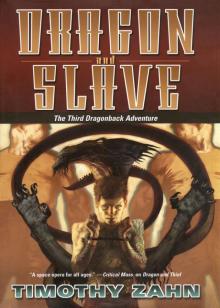 Dragonback 03 Dragon and Slave
Dragonback 03 Dragon and Slave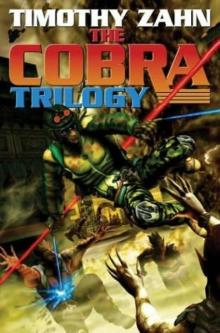 Cobra Bargain
Cobra Bargain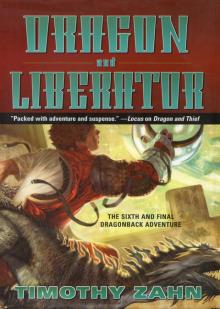 Dragonback 06 Dragon and Liberator
Dragonback 06 Dragon and Liberator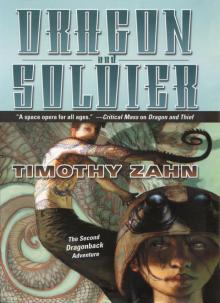 Dragonback 02 Dragon and Soldier
Dragonback 02 Dragon and Soldier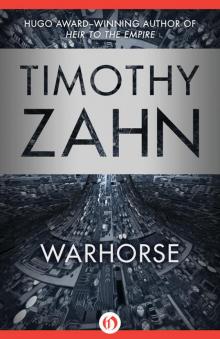 Warhorse
Warhorse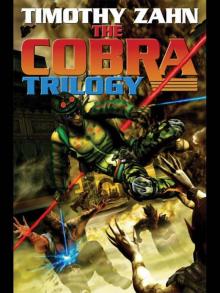 The Cobra Trilogy
The Cobra Trilogy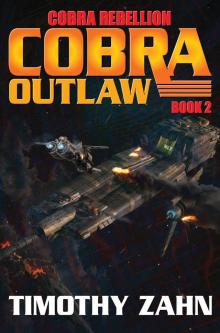 Cobra Outlaw - eARC
Cobra Outlaw - eARC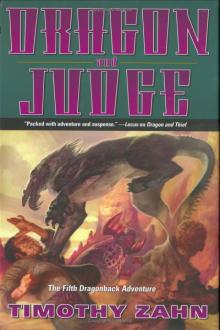 Dragon and Judge
Dragon and Judge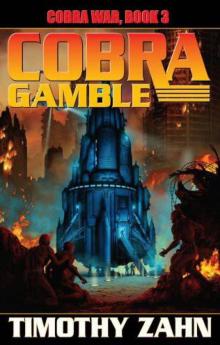 Cobra Gamble
Cobra Gamble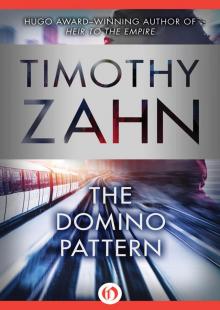 The Domino Pattern
The Domino Pattern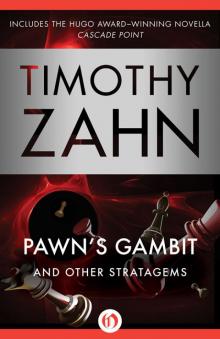 Pawn's Gambit: And Other Stratagems
Pawn's Gambit: And Other Stratagems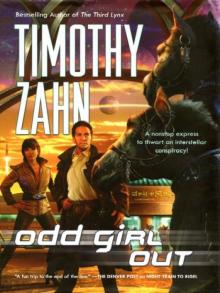 Odd Girl Out
Odd Girl Out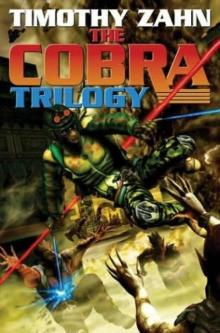 Cobra Strike
Cobra Strike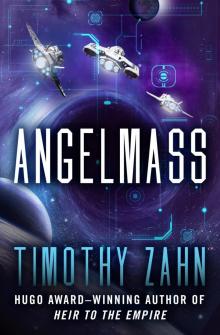 Angelmass
Angelmass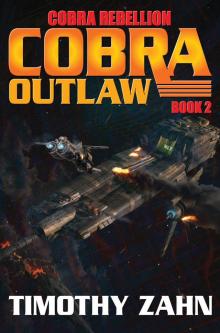 Cobra Outlaw
Cobra Outlaw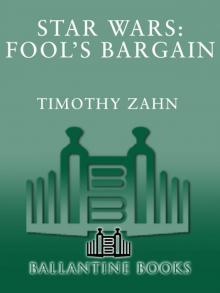 Heir to the Empire
Heir to the Empire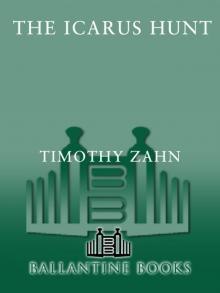 The Icarus Hunt
The Icarus Hunt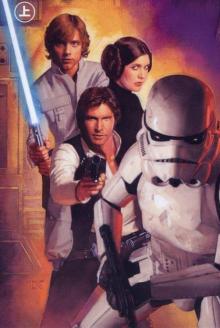 Star Wars - Thrawn Trilogy - The Last Command 03
Star Wars - Thrawn Trilogy - The Last Command 03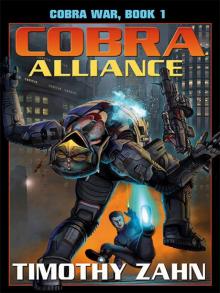 Cobra Alliance
Cobra Alliance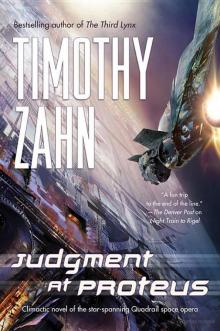 Judgment at Proteus
Judgment at Proteus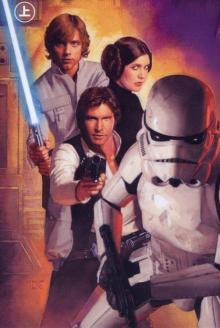 Star Wars - Thrawn Trilogy - Dark Force Rising 02
Star Wars - Thrawn Trilogy - Dark Force Rising 02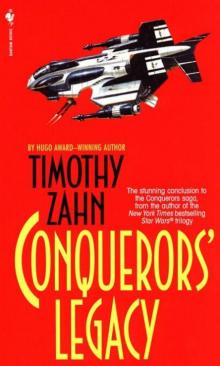 Conquerors' Legacy
Conquerors' Legacy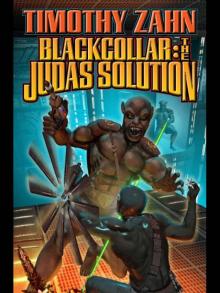 The Judas Solution
The Judas Solution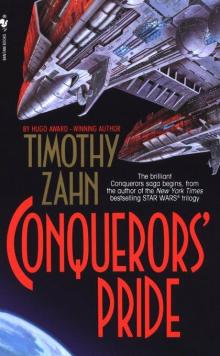 Conquerors' Pride
Conquerors' Pride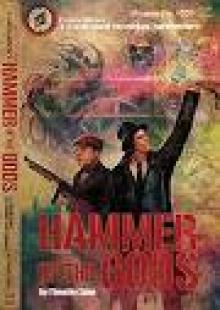 Hammer of the Gods
Hammer of the Gods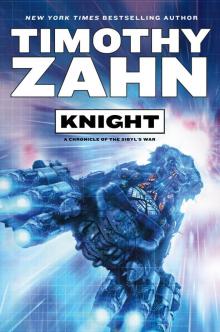 Knight
Knight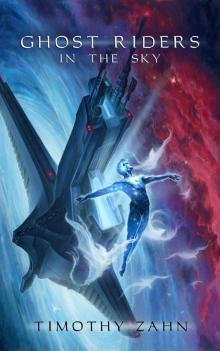 Ghost Riders in the Sky
Ghost Riders in the Sky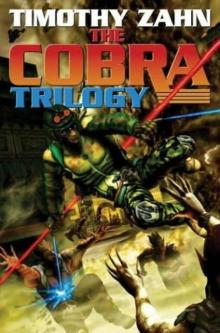 Cobra
Cobra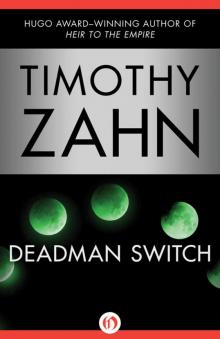 Deadman Switch
Deadman Switch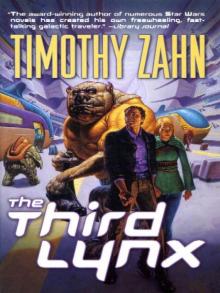 The Third Lynx
The Third Lynx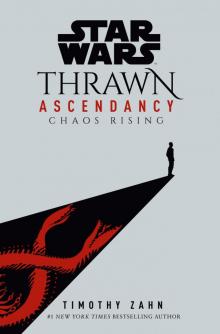 Chaos Rising
Chaos Rising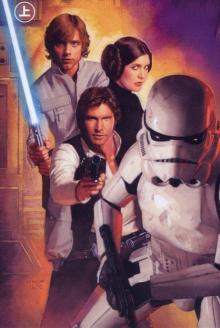 Star Wars - Thrawn Trilogy - Heir to the Empire 01
Star Wars - Thrawn Trilogy - Heir to the Empire 01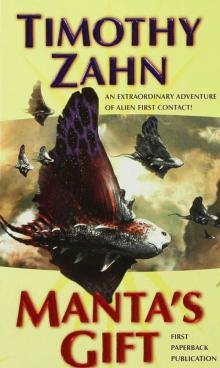 Manta's Gift
Manta's Gift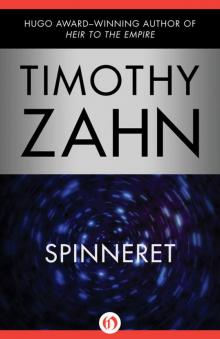 Spinneret
Spinneret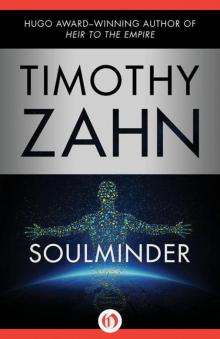 Soulminder
Soulminder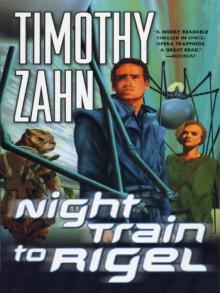 Night Train to Rigel
Night Train to Rigel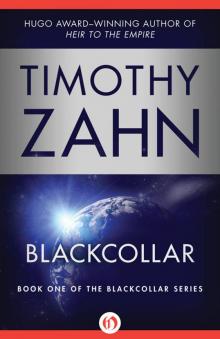 Blackcollar
Blackcollar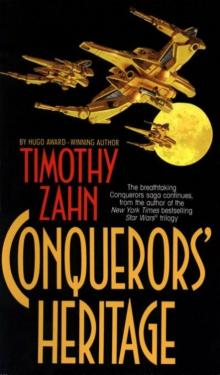 Conquerors' Heritage
Conquerors' Heritage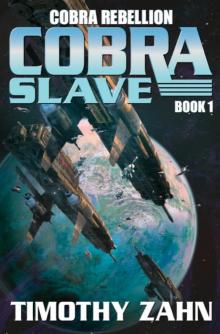 Cobra Slave
Cobra Slave A Coming of Age
A Coming of Age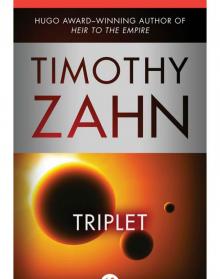 Triplet
Triplet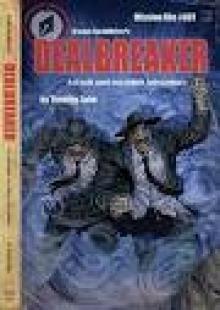 Dealbreaker
Dealbreaker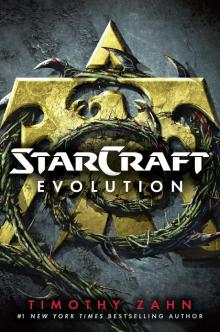 StarCraft
StarCraft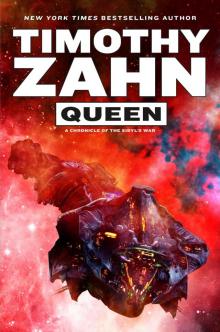 Queen
Queen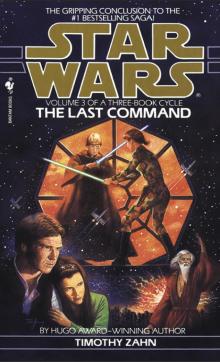 The Last Command
The Last Command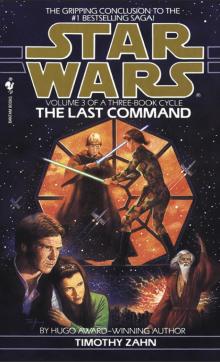 Star Wars: The Last Command
Star Wars: The Last Command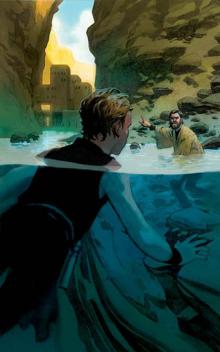 Star Wars Clone Wars: Changing Seasons
Star Wars Clone Wars: Changing Seasons Scoundrels
Scoundrels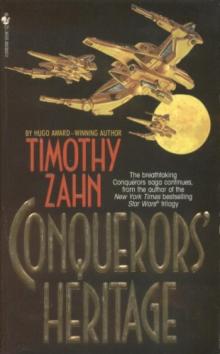 Conquerors 2 - Conquerors' Heritage
Conquerors 2 - Conquerors' Heritage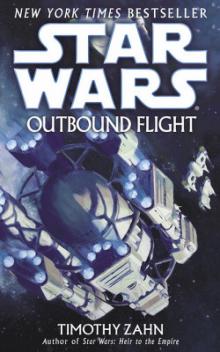 Outbound Flight (звёздные войны)
Outbound Flight (звёздные войны)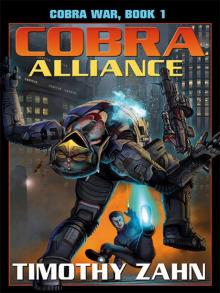 Cobra Alliance-Cobra War Book 1
Cobra Alliance-Cobra War Book 1 Hero of Cartao 2. Hero's Rise
Hero of Cartao 2. Hero's Rise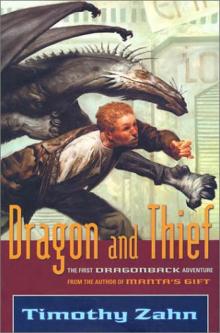 Dragon and Thief d-1
Dragon and Thief d-1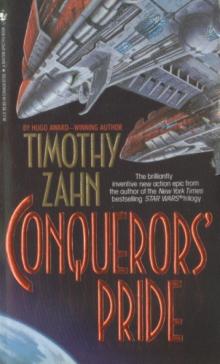 Conquerors 1 - Conquerors' Pride
Conquerors 1 - Conquerors' Pride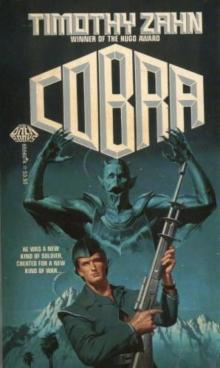 Cobra Alliance cw-1
Cobra Alliance cw-1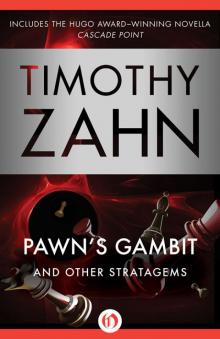 Pawn’s Gambit
Pawn’s Gambit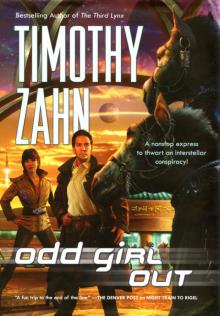 Odd Girl Out q-3
Odd Girl Out q-3 Dragon and Slave
Dragon and Slave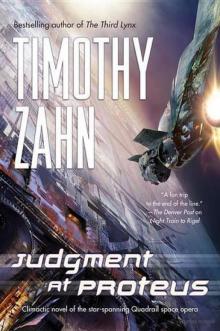 Judgment at Proteus q-5
Judgment at Proteus q-5 Night Train to Rigel (Quadrail Book 1)
Night Train to Rigel (Quadrail Book 1)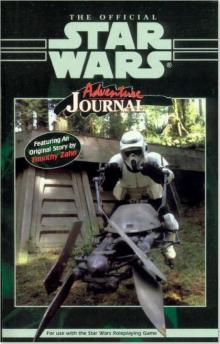 Star Wars: Adventure Journal 11: Command Decision
Star Wars: Adventure Journal 11: Command Decision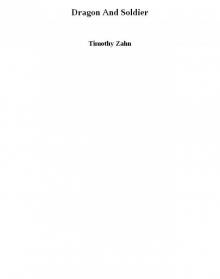 Dragon And Soldier
Dragon And Soldier Hero of Cartao 3. Hero's End
Hero of Cartao 3. Hero's End For Love of Amanda
For Love of Amanda Distant Friends and Other Stories
Distant Friends and Other Stories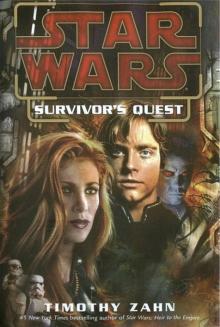 Star Wars: Survivor's Quest
Star Wars: Survivor's Quest Hero of Cartao 1. Hero's call
Hero of Cartao 1. Hero's call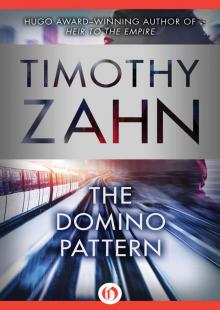 The Domino Pattern (Quadrail Book 4)
The Domino Pattern (Quadrail Book 4)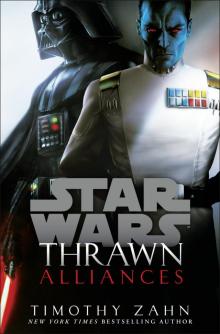 Thrawn_Alliances_Star Wars
Thrawn_Alliances_Star Wars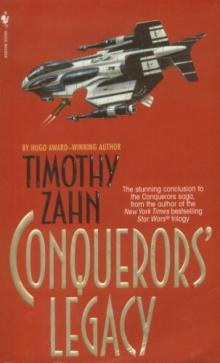 Conquerors 3 - Conquerors' Legacy
Conquerors 3 - Conquerors' Legacy The Blackcollar Series
The Blackcollar Series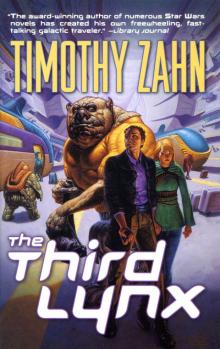 The Third Lynx q-2
The Third Lynx q-2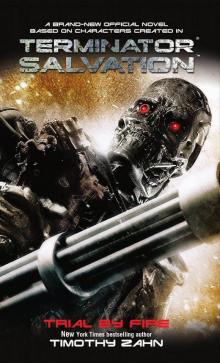 Terminator Salvation: Trial by Fire
Terminator Salvation: Trial by Fire Star Wars - Mist Encounter
Star Wars - Mist Encounter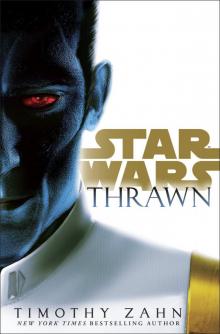 Thrawn
Thrawn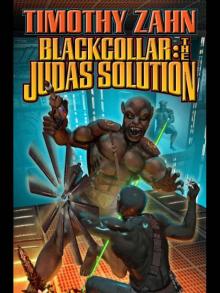 Blackcollar-The Judas Solution
Blackcollar-The Judas Solution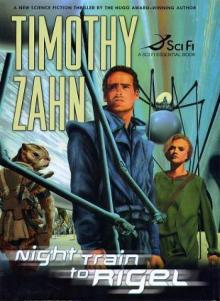 Night Train to Rigel q-1
Night Train to Rigel q-1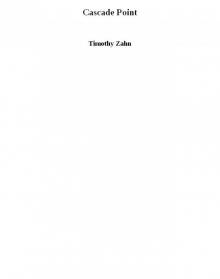 Cascade Point
Cascade Point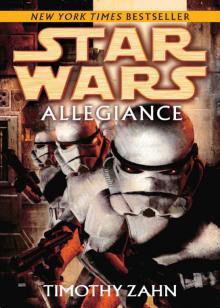 Allegiance
Allegiance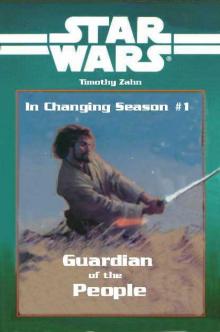 Star Wars - In Changing Season 1 - Guardian of the People
Star Wars - In Changing Season 1 - Guardian of the People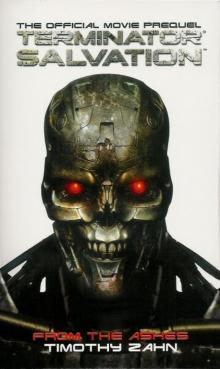 Terminator Salvation - From the Ashes ts-2
Terminator Salvation - From the Ashes ts-2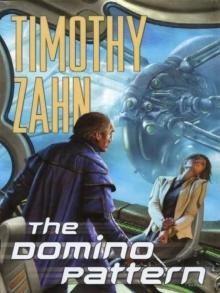 The Domino Pattern q-4
The Domino Pattern q-4 The Big Picture
The Big Picture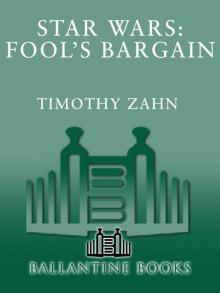 Star Wars: Fool's Bargain
Star Wars: Fool's Bargain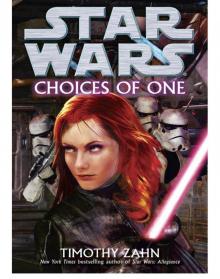 Star Wars: Choices of One
Star Wars: Choices of One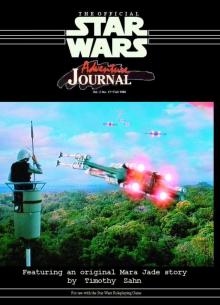 Star Wars - Jade Solitaire - Unpublished
Star Wars - Jade Solitaire - Unpublished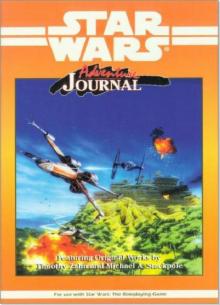 Star Wars: Adventure Journal: Mist Encounter
Star Wars: Adventure Journal: Mist Encounter Outbound Flight
Outbound Flight Star Wars - The Hero of Cartao - Part 1 - Hero's Call
Star Wars - The Hero of Cartao - Part 1 - Hero's Call Thrawn 1 - Specter of the Past
Thrawn 1 - Specter of the Past Survivor's Quest
Survivor's Quest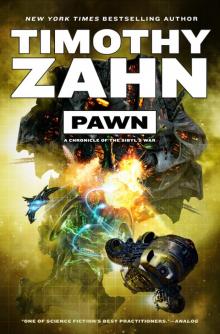 Pawn
Pawn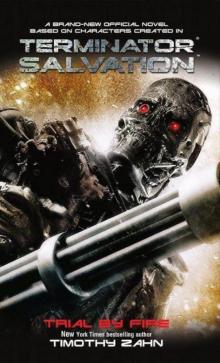 Trial By Fire ts-4
Trial By Fire ts-4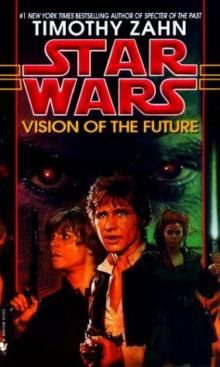 Vision of the future swhot-2
Vision of the future swhot-2 Star Song and Other Stories
Star Song and Other Stories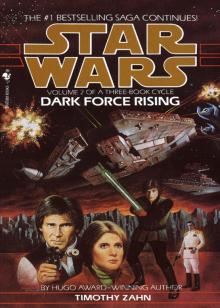 Dark Force Rising
Dark Force Rising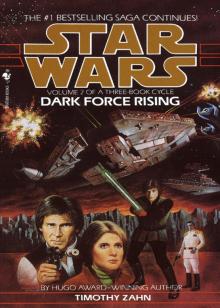 Star Wars: Dark Force Rising
Star Wars: Dark Force Rising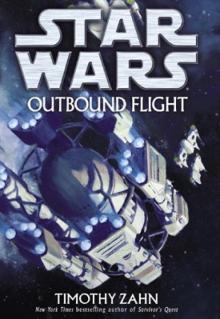 Star Wars - Outbound Flight
Star Wars - Outbound Flight Blackcollar: The Judas Solution
Blackcollar: The Judas Solution The Green And The Gray
The Green And The Gray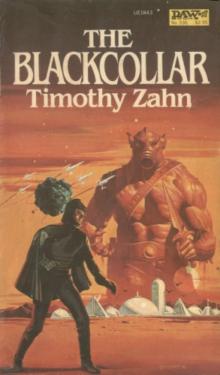 Blackcollar: The Blackcollar
Blackcollar: The Blackcollar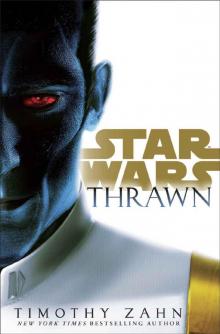 Star Wars_Thrawn
Star Wars_Thrawn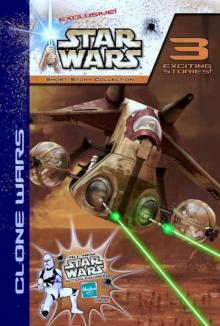 Star Wars - Duel
Star Wars - Duel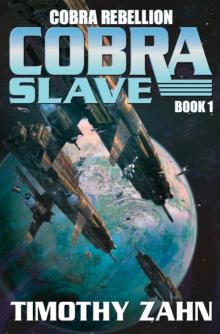 Cobra Slave-eARC
Cobra Slave-eARC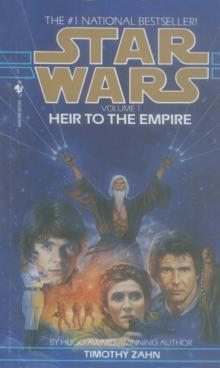 Star Wars: Heir to the Empire
Star Wars: Heir to the Empire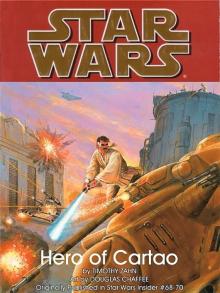 Star Wars: Clone Wars Stories: Hero of Cartao
Star Wars: Clone Wars Stories: Hero of Cartao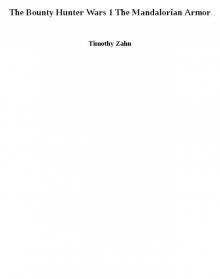 The Bounty Hunter Wars 1 The Mandalorian Armor
The Bounty Hunter Wars 1 The Mandalorian Armor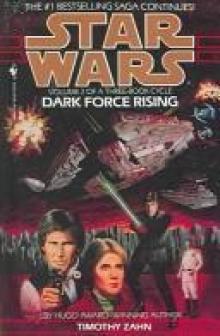 Dark Force Rising (Star Wars) swtt-2
Dark Force Rising (Star Wars) swtt-2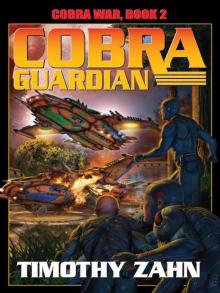 Cobra Guardian: Cobra War: Book Two
Cobra Guardian: Cobra War: Book Two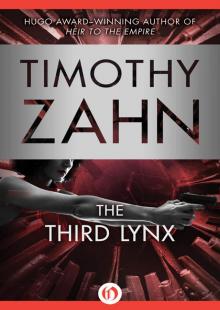 The Third Lynx (Quadrail Book 2)
The Third Lynx (Quadrail Book 2) Time Bomb And Zahndry Others
Time Bomb And Zahndry Others Blackcollar: The Backlash Mission
Blackcollar: The Backlash Mission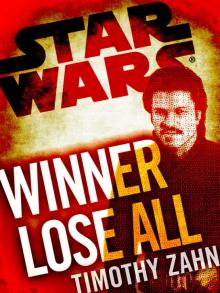 Winner Lose All--A Lando Calrissian Tale: Star Wars
Winner Lose All--A Lando Calrissian Tale: Star Wars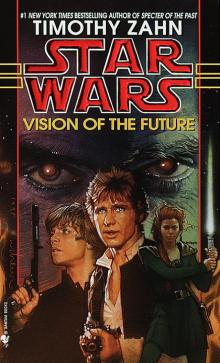 Star Wars: The Hand of Thrawn II: Vision of the Future
Star Wars: The Hand of Thrawn II: Vision of the Future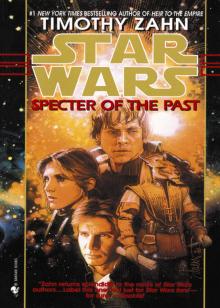 Specter of the Past
Specter of the Past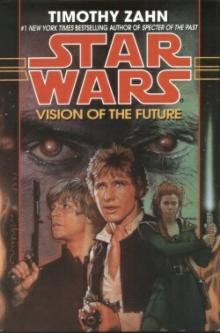 Star Wars - Hand of Thrawn 2 - Vision of the Future
Star Wars - Hand of Thrawn 2 - Vision of the Future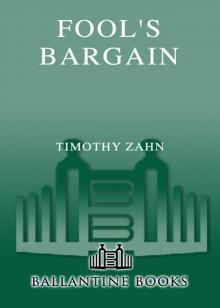 Fool's Bargain
Fool's Bargain From the Ashes
From the Ashes Coming of Age
Coming of Age